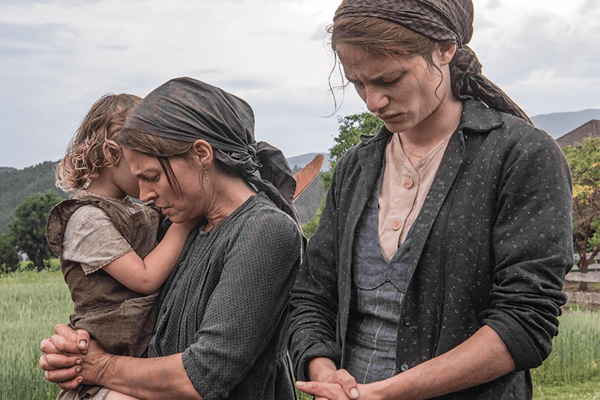TERRENCE MALICK HAS long been associated with spirituality. The director’s philosophy background, poetic style, and love of nature results in art that urges viewers to engage deeply with the world: Ask difficult questions, doubt, and believe.
But A Hidden Life, Malick’s latest, may be the most faith-oriented film yet from the director of The Tree of Life and The Thin Red Line. Through the story of World War II-era martyr Franz Jägerstätter, Malick explores what it means to wrestle with Christian conscience during rising xenophobia and violence. Jägerstätter (played by August Diehl) was an Austrian farmer executed for refusing to swear loyalty to Hitler. For Malick’s purposes, he becomes an audience surrogate as he encounters his community’s reactions to the Third Reich, and later a Christ figure.
Malick spends significant time establishing the beauty of Jägerstätter’s life before the war. We’re given glimpses of his village and farm, witness romantic moments with his wife, Franziska (Valerie Pachner), and fall in love with them and their home.
Read the Full Article

